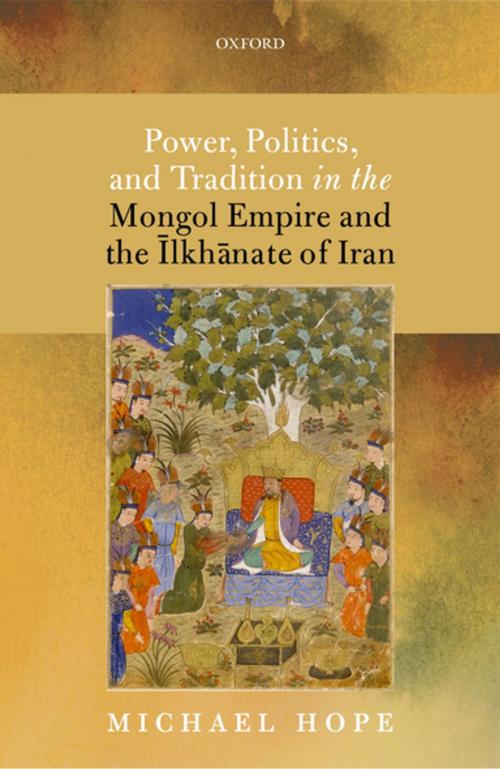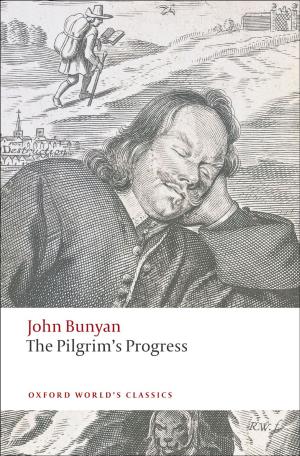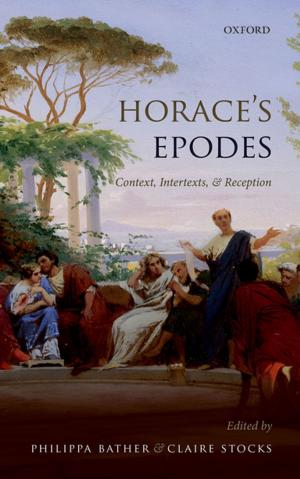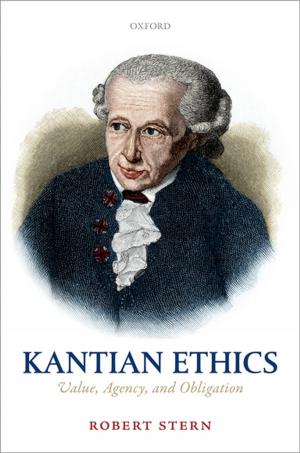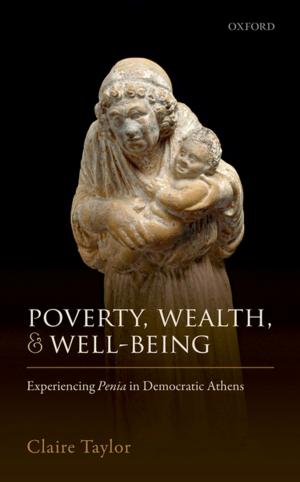Power, Politics, and Tradition in the Mongol Empire and the Īlkhānate of Iran
Nonfiction, History, Middle East, Social & Cultural Studies, Political Science| Author: | Michael Hope | ISBN: | 9780191081088 |
| Publisher: | OUP Oxford | Publication: | September 29, 2016 |
| Imprint: | OUP Oxford | Language: | English |
| Author: | Michael Hope |
| ISBN: | 9780191081088 |
| Publisher: | OUP Oxford |
| Publication: | September 29, 2016 |
| Imprint: | OUP Oxford |
| Language: | English |
This study provides a new interpretation of how political authority was conceived and transmitted in the Early Mongol Empire (1227-1259) and its successor state in the Middle East, the Īlkhānate (1258-1335). Authority within the Mongol Empire was intimately tied to the character of its founder, Chinggis Khan, whose reign served as an idealized model for the exercise of legitimate authority amongst his political successors. Yet Chinggis Khan's legacy was interpreted differently by the various factions within his army. In the years after his death, two distinct political traditions emerged within the Mongol Empire, the collegial and the patrimonialist. Each of these streams represented the economic and political interests of different groups within the Mongol Empire, respectively, the military aristocracy and the central government. The supporters of both streams claimed to adhere to the ideal of Chinggisid rule, but their different statuses within the Mongol community led them to hold divergent views of what constituted legitimate political authority. Michael Hope's study details the origin of, and the differences between, these two streams of tradition; analyzing the role that these streams played in the political development of the Mongol Empire and the Īlkhānate; and assessing the role that ideological tension between the two streams played in the events leading up to the division of the Īlkhānate. Hope demonstrates that the policy and identity of both the Early Mongol Empire and the Īlkhānate were defined by the conflict between these competing streams of Chinggisid authority.
This study provides a new interpretation of how political authority was conceived and transmitted in the Early Mongol Empire (1227-1259) and its successor state in the Middle East, the Īlkhānate (1258-1335). Authority within the Mongol Empire was intimately tied to the character of its founder, Chinggis Khan, whose reign served as an idealized model for the exercise of legitimate authority amongst his political successors. Yet Chinggis Khan's legacy was interpreted differently by the various factions within his army. In the years after his death, two distinct political traditions emerged within the Mongol Empire, the collegial and the patrimonialist. Each of these streams represented the economic and political interests of different groups within the Mongol Empire, respectively, the military aristocracy and the central government. The supporters of both streams claimed to adhere to the ideal of Chinggisid rule, but their different statuses within the Mongol community led them to hold divergent views of what constituted legitimate political authority. Michael Hope's study details the origin of, and the differences between, these two streams of tradition; analyzing the role that these streams played in the political development of the Mongol Empire and the Īlkhānate; and assessing the role that ideological tension between the two streams played in the events leading up to the division of the Īlkhānate. Hope demonstrates that the policy and identity of both the Early Mongol Empire and the Īlkhānate were defined by the conflict between these competing streams of Chinggisid authority.
